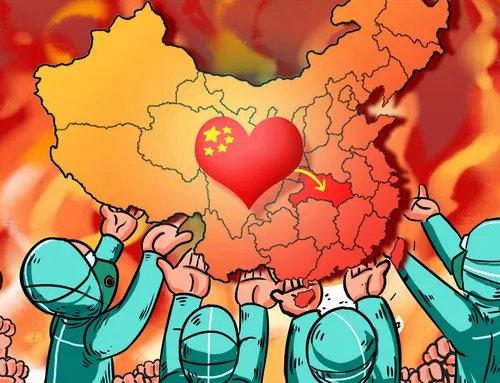How to Find Manufacturers in China
As a product sourcing agent in China, I am often asked to find a manufacturer by global customers. They assume I would be the best person to have readily available information for whatever they inquire, to them, China is a place with millions of factories that can make any possible product in this world, all they need to be assured is if they are getting the “manufacturer” or all they require is for me to give them contact details of some of the “real factories”.
They are likely to fall into many traps of thinking, just to name a few:
1. A manufacturer can make everything we ask them to produce, all we need to do is to ask the price and the cost of making a sample and doing the mass production.
2. A manufacturer must have the lowest price available in the market.
3. A manufacturer must be thirsty to get in touch with them as they are the real buyers while the traders are middlemen.
4. If we meet the contact point of the supplier in a factory, we must be dealing with a genuine factory.
5. It’s impossible to find real factories on Alibaba because some sourcing agents say so.
6. A manufacturer is always a better choice than a trading company.
These overly confident or pessimistic speculations don’t come with no reason, the world has been enjoying the benefits of made-in-China products so easily and for so long that they have to take for granted the need to understand what really is the case.
The truth about the above scenarios are:
1. A real manufacturer never makes something totally on their own, there is a high level of collaboration and integration among the Chinese companies that enables the spectacularly organized supply chain.
2. A manufacturer may not always have the best price, it really depends on how well they manage their own supply chain; occasionally, some of those really reputable factories pay high value-added tax while the trading companies enjoy tax refunds.
3. More and more factories start to set up their own export department but still the large majority of them deal with more trading companies than direct customers, because the time and human factor costs in dealing with say 100 overseas customers is 10 times higher than dealing with 10 trading companies and the revenue of the latter may be 5 times the other. Let the professionals do the professional, some factories believe. Some trading companies understand the international markets and the industry way better than both the factory and the customers, so they remain on top of the list of most factories unless some of the direct customers are enormously large.
4. If you meet or E-meet someone in a factory, that doesn’t guarantee it’s a manufacturer, it’s borderline the possibility of being lied to but you should know there’s a unbelievable high level of collaboration between the trader and the factory, it’s not done with bad intentions just the way how things are done in China. A typical example is a Hong Kong trading company could earn 90% of the manufacturing cost in the past in dealing with the world as the advantages of being the bridge between made-in-China and traded-with-China are really powerful, though it’s a trend that’s declining rapidly.
5. The Chinese factories are really not that hard to find due to the readily accessible supply chain resources made available by countless B2B platforms such as Alibaba, and there are countless other ways to do the exploration, to be elaborated in the below analysis.
6. A manufacturer and a trading company both have to meet some of the key criterion of being a suitable supplier: acceptable MOQ(minimum order quantity), supply chain management capabilities, global market understanding, export setup, international communication abilities.
It pays to avoid the some of those typical traps of thinking before we even take on the journey of finding a manufacturer. Without further ado, let me dive into how to exactly locate the manufacturers for our sourcing projects.
Common ways of finding manufacturers include:
1.Ask for referrals.
If you are in a good enough relationship with any of your existing suppliers in China you can ask them for any referrals for a different product; or it can be your own contacts in your home country, say you have friends that import China as well, they might be able to give you some good references. This also helps the mutual trust with the manufacturers to be nurtured easily based on someone you both know well.
2. Use B2B platforms.
Alibaba is indeed on the top of the list of go-to places for anyone that’s looking for global suppliers (all countries, largely China) online, serving as the absolute encyclopedia of suppliers including manufacturers. Besides, Made-in-China.com, Global Sources are also household names. I also heard from customers MFG.com is probably an option worth dabbling with.
Outside of international martketplaces, equally or more valuable are Chinese local B2B platforms such as 1688.com, HC365.com, CN.Made-in-China.com, China.com(Chinese Suppliers), Gongchang.com(World Factories), Makepolo.com(Marco Polo). However, one that doesn’t communicate in Chinese and has a Chinese bank account preferably needs local agent in China to explore these options.
3. Use both international and Chinese local search engines
You can find Chinese manufacturers by searching some of the keywords for your products on Google or Baidu. Some of the suggestions provided by the behemoths are indeed highly instructive, but you need to avoid being misguided by some of the beautifully designed “manufacturer websites” which are artfully built by professional digital marketing agencies that are capable of making a anyone that pays high, for example, a small-office-home-office look like a factory more than a real factory on Google.
Baidu is powerful in giving suggestions for genuine factories in China because it’s the largest Chinese search engine and probably the only one that’s actually used in China. Focus on organic search results that are the most helpful and if you are lucky you may find some of them have presence on Alibaba.com in parallel.
4. Attend trade shows.
Famous trade shows such as Canton Fair, Hong Kong Electronics Fair are highly practical places to go for finding suppliers and forming or maintaining relationship with a supplier. But after Covid 19, some new trade shows are more popular because 70% of the international Amazon sellers and Shopify sellers are from China, such as the China Intetnational Gifts and Home Products Fair.
5. Organize factory tours.
Factory tours are really effective in verifying a real manufacturer, though you have to be careful with being just “shown” a factory. In the past, it was quite a common practice to display just a board saying a trader’s company name in any factory that a foreign customer goes to so the supplier can claim they are a manufacturer, they can even put up a poster saying “Warmly welcome Mr. so and so into our so and so factory!” But your orders could be produced actually in a different place.
Therefore, especially after the world pandemic, one is highly advised to engage a Chinese local friend to accompany the factory tour or organize a factory tour remotely by using a China sourcing agent.
6. Use 3rd party inspection services.
3rd party inspection agencies such as SGS and UL are highly recommended to organize professional factory audit for any supplier you name. The only disadvantage as compared with a sourcing agent in China is there’s a lack of personal touch in the relationship building, and you always may need to deal with the factory using new faces.
7. Use social media tools.
Some social media platforms such as LinkedIn are powerful tools of locating potential suppliers and manufacturers, it also enables an excellent personal touch but you also need to carry out your due diligence with some more steps to take. Besides, Chinese local WeChat groups is also a great place to discover matching suppliers.
8. Chinese wholesale markets.
Famous examples of wholesale markets in China include Yiwu International Wholesale Markets, Shenzhen Huaqiangbei Electronics Market, Guangzhou garment wholesale markets, Foshan furniture town, Zhongshan lighting markets, etc.
9. Use sourcing agents.
You can either engage a sourcing agent to find manufacturers for you or ask them to help you to verify some of the potential suppliers for you. They are super useful when you are not able to travel easily to China especially after the era of pandemic.I was super scared when Covid 19, a form of coronavirus broke out in China in early 2020, as a sourcing agent company in China I was projecting the product sourcing business in the year to come to be doomed.






